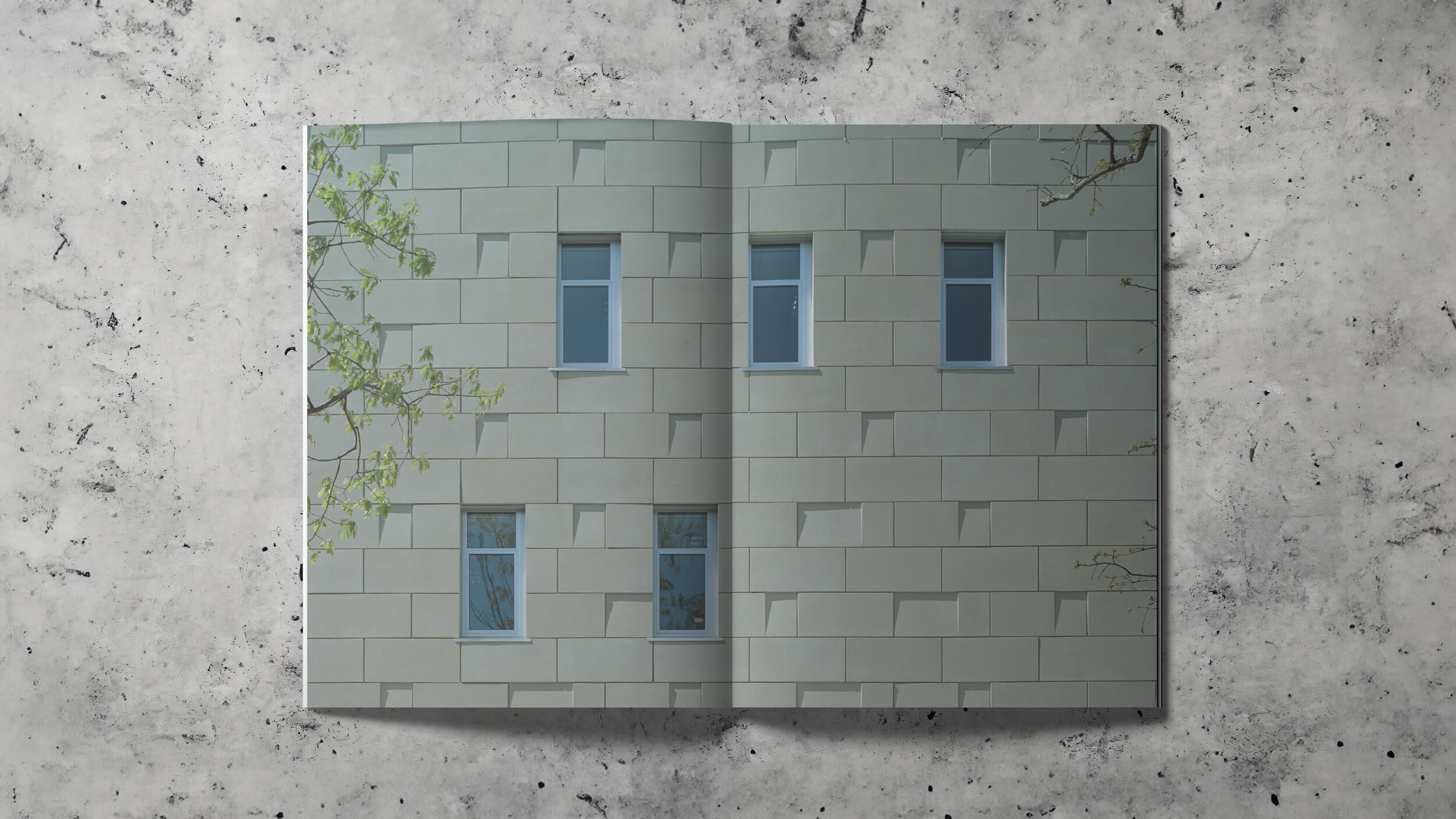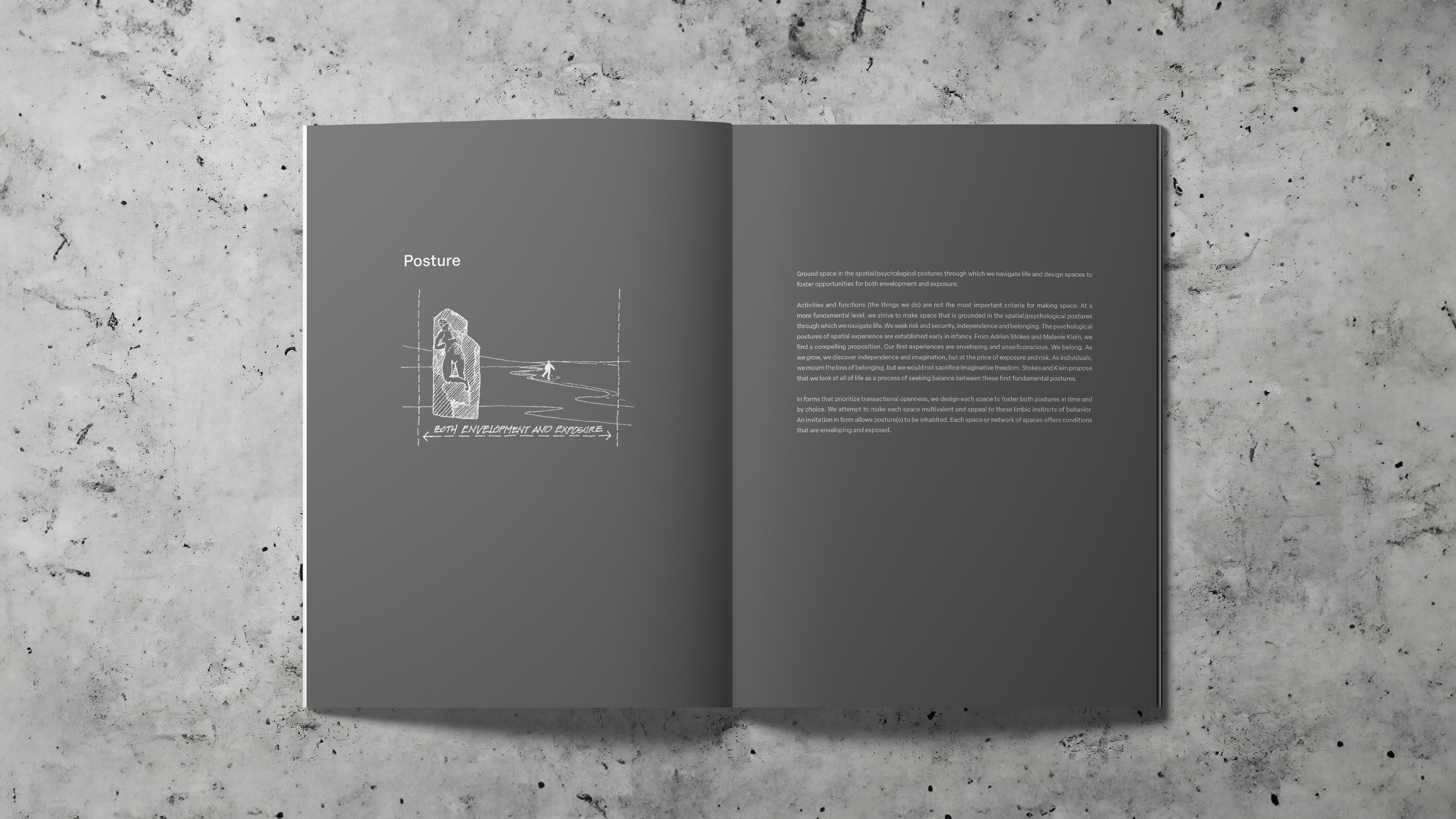
Duvall Decker
Foundations
Nine Propositions and fifty-three Foundations
By Anne Marie Duvall Decker, FAIA and Roy Decker, FAIA
Description
“This is first a book about values. It has lessons about how to live our lives and along the way, it teaches us how to practice an architecture with integrity, a practice guided by our hearts.”
– Billie Tsien, AIA | Partner, Tod Williams Billie Tsien Architects
“At first, I thought that it was beautiful because you have so elegantly described the essence of the design process, a sort of celebration of what we do. But as I read deeper, both within each essay and as I progressed through the book, I realized that you had described not only what we architects, hopefully, do know, but what we must know, and believe to reach design solutions that enhance life quality for our communities and our practices. It is an amazing contribution to the theory and practice… much harder to do and much more valuable.”
– Carol Ross Barney, FAIA, Hon. ASLA | 2023 Gold Medalist
“As an architecture enthusiast, I would have been delighted if Foundations was simply a conventional architectural monograph filled with beautiful photographs of consequential work created by an accomplished firm that I admire. But this isn’t that kind of book. It is much more profound and, frankly, useful.”
– Paul Mankins, FAIA | Professor of Practice in Architecture, Iowa State University; Founder and Principal, Substance Architecture
Duvall Decker’s Foundations strikes out in a different direction, burrowing in on location and the realities of local capitalism to learn what an architecture founded on values might entail. Rather than embracing the big, splashy, and bombastic, they explore what grace, care, respect, and empathy mean for achieving impactful architecture. This instrumental and didactic book illustrates this different path through examples and concise prose to outline an architecture that can recapture the community building and optimism that defined the profession and its efforts just half a century ago.
This book should be a required text for every architecture student who wishes to understand how their experiences in the school can translate into meaningful action upon graduation. In fact, it is a book that could easily shuttle between studio and professional practice courses and serve both. In professional practice courses, Foundations can accompany the discussion on ethics and serve as a guidepost for one’s own thoughts about what can make the architecture profession exceptional in a hyper-consumptive, environmentally impaired world. The book’s lessons can equally serve the design studio. Reading the book’s propositions such as Inquiry, Orchestration, and Presence provides lessons useful to the early stages of the design process that constitute the core of studio education.
I can also envision a few of my friends who lead large multinational firms also wanting to read this book and begin the task of defining their own foundations derived from propositions. For them, the Duvall Decker book can provide a series of guideposts for discussion and serve as an inspirational precedent.”
– David Cronrath | Architect, Professor Emeritus, former Associate Provost and Dean University of Maryland
The most important project for a design studio is the design of the practice itself. A Studio’s point of view is often first defined by feelings and hopes, but if cultivated, grows into values and tactics.
How the studio environment is crafted and how it cultivates a kinship around this point of view with collaborators, clients, consultants, community members, and contractors is essential for it to be productive and have a healthy impact. With discipline, a studio evolves a practice that shapes the character, performance, and value of the work. The studio’s early critiques define the approach and territory of work and the propositions that are asked of every project. The studio environment and relationships create the space for the work to be possible.
Nine (9) Propositions and fifty-three (53) Foundations are shared herein. Each Foundation additionally includes a supportive commentary. Foundations and Propositions are presented as a work in progress. These are lists that chronicle our thinking and doing over 25 years. For us, there is no separation between theory and practice. This collection of Foundations and Propositions captures an approach to the work and way of being an architect. This work is a privilege with public responsibilities. This is one studio’s search for public good.


















